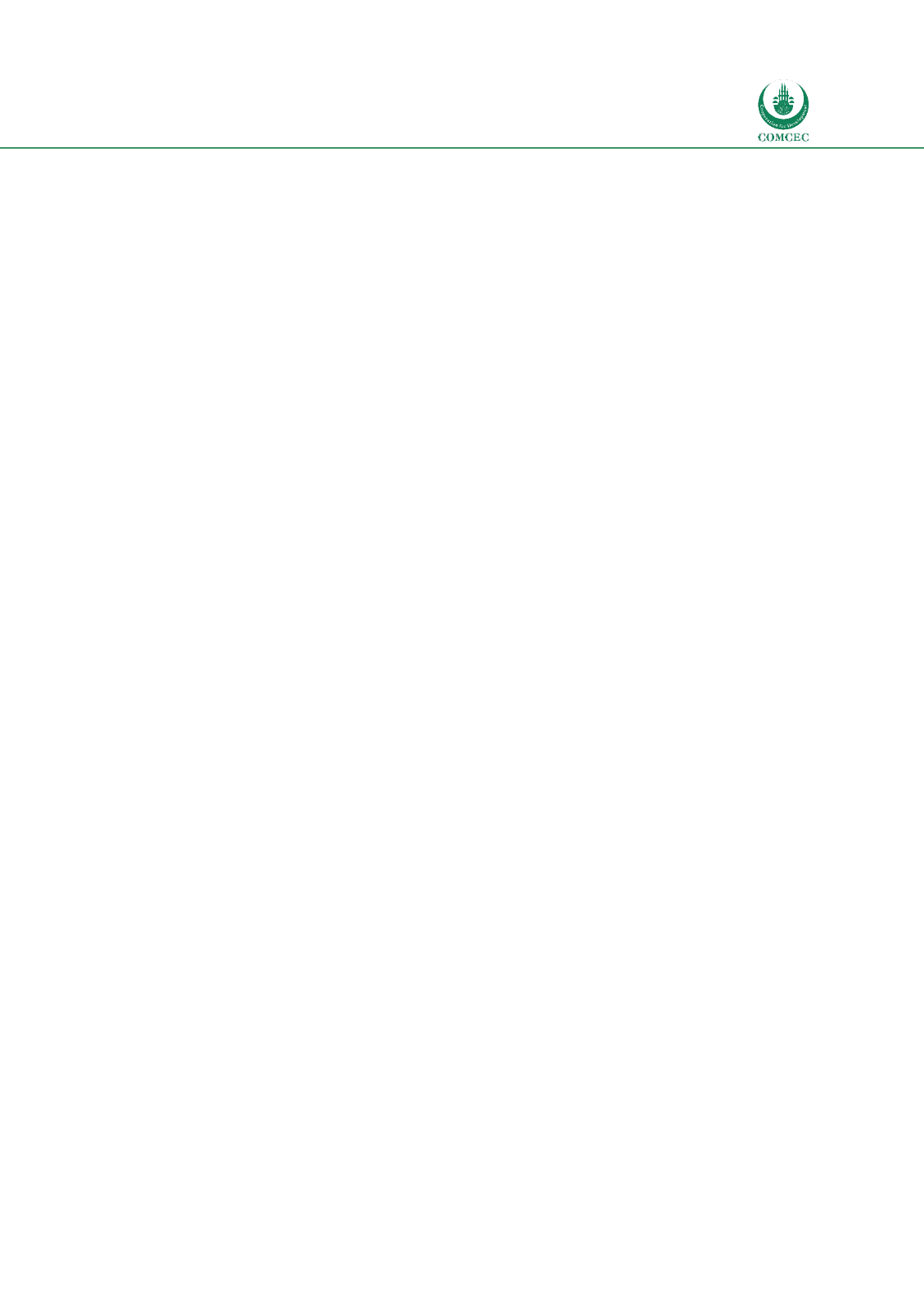

Muslim Friendly Tourism:
Regulating Accommodation Establishments
In the OIC Member Countries
75
certifying bodies is important. Getting consumer input by conducting consumer
surveys is also critical.
Changing “MFT” hindering legislation
Some countries have what is classified under this study as MFT hindering legislation
for the accommodation sector, such as the case in Egypt and the United Arab Emirates
where 5-star hotels are required to serve alcohol to maintain their star rating. “MFT”
hindering legislation needs to be amended so as not to conflict with MFT standards
and to encourage adoption of such standards.
Liaising with the OIC /regional governments and allowing for local variations
Most of the existing MFT standards are national standards developed without
regional cooperation. Liaising with regional the OIC governments would encourage
MFT standard adoption on a regional level, which can lead to higher levels of
standard awareness and facilitate marketing efforts. With regional cooperation, the
MFT standard should make allowances for local variations to meet the unique needs
of each country.
Minimizing conflict of interest between standard setting and certification roles
There is currently a conflict of interest between the role of standard setting and
certification as in many cases both roles are played by the same body.
Standardization bodies that also provide certification demonstrate a conflict of
interest. In many instances, certification bodies also provide training, which is also a
conflict of interest.
Training and capacity building of local inspectors
With respect to auditors/inspectors, in many cases, they come from a Halal food
inspection background and lack specialized training in MFT. It is recommended to
provide training for inspectors to prepare them for the issues they may encounter in
accommodation establishments beyond the area of food and beverages. Training and
qualification of these inspectors should follow a separate scheme independent from
the certifying organization, in order to ensure impartiality and non-conflict of interest
when executing inspections for certification purpose.
Establishing controls, documentation and follow up processes
Proper documentation, including a Standard Operating Procedures (SOP) document
is often missing in the current development process of MFT standards, as well as
control and follow up processes. This needs to be addressed in order to ensure the
smooth implementation and the proper application of MFT standards.
Standard promotion among stakeholders and consumers
The adoption rate of existing MFT standards is low in part due to lack of promotional
efforts targeting stakeholders and consumers.
















